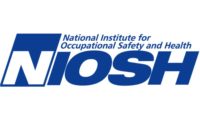 OSHA has renewed its alliance with the Global Cold Chain Alliance (GCCA) to continue working together to protect workers from exposure to hazardous chemical releases from ammonia refrigeration systems. The alliance will also focus on improving the process safety management programs for these systems.
OSHA has renewed its alliance with the Global Cold Chain Alliance (GCCA) to continue working together to protect workers from exposure to hazardous chemical releases from ammonia refrigeration systems. The alliance will also focus on improving the process safety management programs for these systems.
"We look forward to our continued alliance with GCCA and working together to protect worker safety and health," said Assistant Secretary of Labor for Occupational Safety and Health Dr. David Michaels.
A "high" health hazard
Anhydrous ammonia is widely used as a refrigerant in many industrial facilities including meat, poultry and fish processing facilities, dairy and ice cream plants and cold storage warehouses. Ammonia is considered a high health hazard because it is corrosive to the skin, eyes and lungs. Spills and releases of the chemical can pose the risk of fires and explosions.
Through the alliance, OSHA and GCCA will provide training to OSHA staff including a webinar on ammonia safety, and develop outreach materials related to ammonia safety and PSM. The alliance will also support the agency's national outreach campaigns including the National Emphasis Program for Chemical Facilities and the prevention of falls in construction.
About GCCA
GCCA comprises 1,650 employers in the temperature-controlled products industry whose primary focus is to maintain the quality and safety of products distributed to consumers. GCCA members employ about 300,000 workers, which accounts for 90 percent of public refrigerated warehouse facility workers.
About the Alliance Program
Through its Alliance Program, OSHA works with unions, consulates, trade and professional organizations, faith- and community-based organizations, businesses and educational institutions to prevent workplace fatalities, injuries and illnesses. The purpose of each alliance is to develop compliance assistance tools and resources, and to educate workers and employers about their rights and responsibilities. Alliance Program participants do not receive exemptions from OSHA inspections or any other enforcement benefits.


